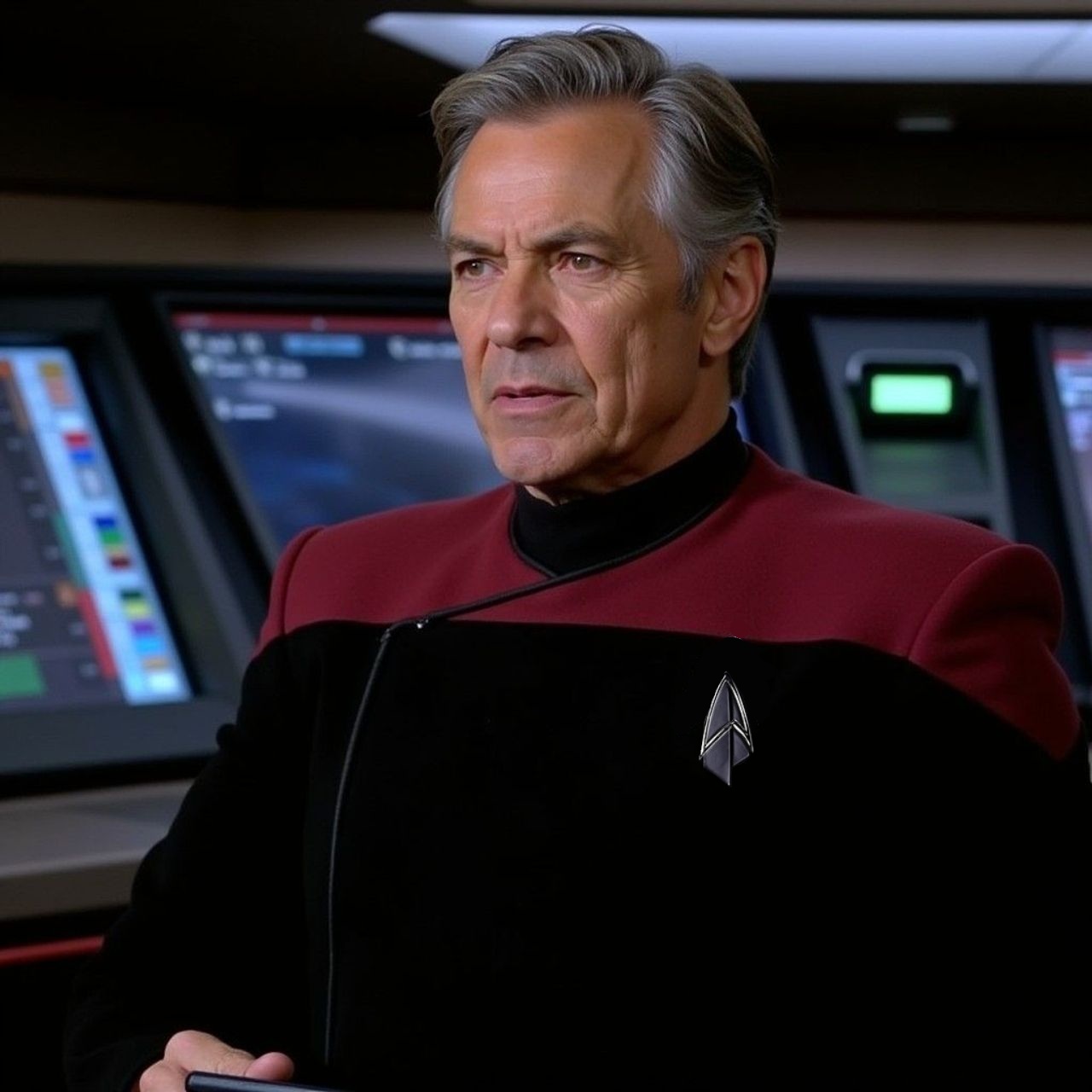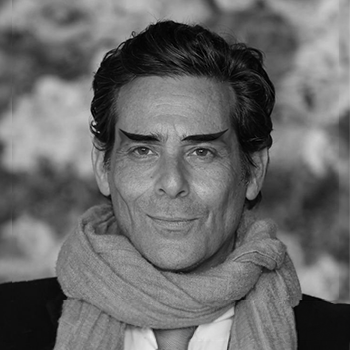The message came through on a quiet Tuesday. He was sipping a cup of lukewarm tea in his quarters, reading about the latest Starbase 72 security notices, when the terminal chimed. The words popped onto the screen like a quiet knock at his memory.
“Jimmy, it’s done. I signed the contract this morning. The Stone House belongs to someone else now. A young couple from London, nice folks. They said they fell in love with the porch.”
Kincaid sat for a moment, unmoving. The tea and the security notices lost their interest.
“Well,” he muttered to himself, staring at the screen. “I suppose it had to happen eventually.”
He leaned back in the chair, hands clasped behind his head. For a long time, he did not say anything. Did not think anything worth putting into words. Instead, he listened to his wife, Meredith, getting ready for her shift in sickbay. It was good to have something else to focus on because he was not ready to open himself to whatever feelings the loss of the Stone House would bring about. Kincaid was good at putting thoughts in a box and keeping them there. Since the Vaadwaur invasion he now had a lot of boxes.
Later that month, he stood on the porch of the Stone House just after dusk. He built the house on Holodeck 3. Not at once, but in pieces. First, the stone exterior, weathered with the correct lichen growth patterns. Then the kitchen, with its uneven floorboards, slanted subtly to one side. Then the porch swing, which he had once oiled by hand while his grandmother trimmed her irises nearby, ignoring him with purposeful affection.
The simulation was imperfect. He knew that. The air was too still; the house was too silent. The computer could generate smell, but not the ghost of life: the smell that lingered in old books, old clothes, old lives.
He walked from room to room, not like a man returning home, but like one trying to interrogate a memory. Tentative, searching. He touched the banister, running his hand along the grain of the wood. It felt like wood should but none of the notches, grooves, or idiosyncrasies of the real banister were there.
He did not add holograms of the people. That would have been grotesque. He had no desire to see his grandmother brought back as a puppet of code. No desire to reconstruct the cadence of her speech or the way she had called him ‘Jimmy’ with a kind of ironic tenderness. Instead, he allowed the silence to stretch out.
Outside, on the wraparound porch, he sat on the swing seat. It moved gently when he pushed with his foot, creaking but with the wrong tone. Through the simulated trees, a dusk light filtered down, digitally enhanced to resemble a late October evening in central Pennsylvania. Back when the leaves fell in earnest and his world smelled of wood smoke.
He heard footsteps on the gravel path behind him and fought down the irritation at being disturbed. He had logged where he was – a stickler for protocol – but could not help but resent the intrusion.
“Commander?” a voice said. “Hope I’m not interrupting”
He turned. Chief Minogue, one of his security officers, walked the path toward him with a sympathetic smile. The chief played the fool but Kincaid knew he was more empathetic, more caring, than his carefree and occasionally idiotic behaviour would have people believe. And Minogue was closer in age to him and that was a comfort, compared to all the youngsters under his command.
“No, no, not at all,” Kincaid said, attempting to add warmth to his voice when he did not feel like it. “Come on up. It’s all right.”
Minogue looked at the house, whistling. “This is yours?” he asked.
“Well,” Kincaid said, chuckling softly, “It was. Belonged to my grandmother. And then, technically, my cousin, once we all scattered like dandelions. I spent a lot of time here when I was a boy.”
“I don’t believe you were ever that young,” Minogue jostled him, “It’s beautiful.”
He nodded slowly. “The real house is, was. I guess is, but we just sold it. Who needs an empty house?”
They stood in silence for a while, Minogue making a show of continuing to look at the house, giving Kincaid time to respond.
Seemingly finding the silence too long, Minogue rocked on his heels, then asked, “You recreated the whole thing? From memory?”
“Best I could. You’d be surprised what sticks in the brain. The feel of the banister, the way the floor creaked near the stove. And that spot over there, near the door? That’s where I used to sit as a kid, piled up all my important things on the floor by the wall. The pile always included my grandfather’s compass. But I lost it.”
Minogue smiled again, far too charming, “You know you could recreate your family? Go hunting for that compass and actually find it.”
Kincaid looked down at the porch floorboards. “No, I don’t think so, Hugh,” He let out a breath, “There’s something about the house being quiet. That was part of it. People left, seasons changed. But the house was always the permanent feature, a good host to whatever was going on.”
Minogue did not answer right away. He tucked his hands into his uniform pockets and stared out at the simulated field beyond the trees. “You know, with living on all these starships, I miss rain,” he said finally.
Kincaid smiled, “Oh sure. Rain on an old roof. That’s a kind of music people forget to request from the computer”
“We constantly moved – a proper travelling circus. I would have liked a place like this. Sturdy.”
They both breathed in the air, good enough to imagine the real thing.
“I’ll leave you to it, nothing that can’t wait,” Minogue said and turned away.
“Come by anytime,” Kincaid replied, automatically, unsure if he meant it, “The door never locked.”

 Bravo Fleet
Bravo Fleet










